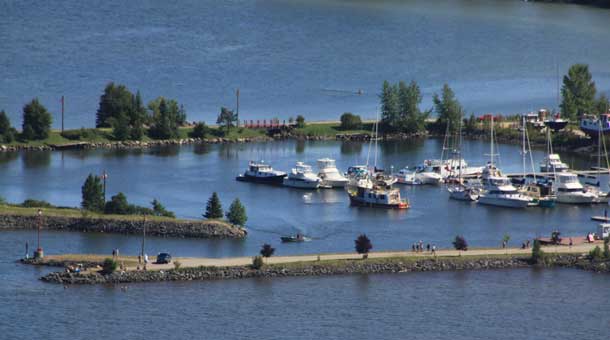
Warming of Fresh Water Lakes Threaten Climate
THUNDER BAY – CLIMATE – Climate change is rapidly heating up lakes around the world, threatening freshwater supplies and ecosystems across the planet, according to a study spanning six continents.
More than 60 scientists took part in the research, published in the journal Geophysical Research Letters and announced at the fall meeting of the American Geophysical Union.
“Our knowledge of how lakes are responding to global change has been lacking,” said Henry Gholz, program director in the Division of Environmental Biology at the National Science Foundation, which funded the research. “That has made forecasting the future of lakes — and the life and livelihoods they support — very challenging. These newly reported trends are a wake-up call to scientists and citizens, including water resource managers and those who depend on freshwater fisheries.”
Lakes warming faster than oceans or atmosphere
The study found that lakes are warming an average of 0.61 degrees Fahrenheit each decade. That’s greater than the warming rate of the oceans or the atmosphere, and it can have profound effects, the scientists say.
At the current rate, algal blooms, which ultimately rob water of oxygen, should increase by 20 percent over the next century. Some 5 percent of the blooms will be toxic to fish and animals.
Emissions of methane, a greenhouse gas 20 times more powerful than carbon dioxide, will increase 4 percent over the next decade.
“Lakes are important because society depends on surface water for the vast majority of human uses — not just for drinking water, but manufacturing, energy production, irrigation and crops,” said paper co-author Stephanie Hampton of Washington State University. “Protein from freshwater fish is especially important in the developing world.”
Lake temperature: An ecosystem referee
Temperature is one of the most fundamental and critical properties of water. It acts like a strict referee, commanding a host of other properties that include intricate living processes that have evolved within strict boundaries.
When the temperature swings quickly and widely from the norm, the rules suddenly change. Unaccustomed to the new rules, life forms in a lake can change dramatically and disappear.
Research by Catherine O’Reilly, a geologist at Illinois State University and also a paper co-author, demonstrated that lakes with rising temperatures show declining rates of new organic matter development through plant photosynthesis and other means.
Largest study of its kind
The study is the largest of its kind and the first to use a combination of long-term “from the lake” measurements and satellite data. The blend of methods offsets the shortcomings of any individual technique used.
The team monitored more than 235 lakes for at least 25 years. That’s a fraction of the world’s lakes, but those contain more than half the world’s freshwater supply.
The researchers said that various climate factors are linked with the warming trend. In northern climates, lakes are losing their ice cover earlier. Many areas have less cloud cover, exposing lake waters to more of the sun’s warming rays. Tropical lakes are also being exposed to more solar radiation, as well as warmer air temperatures.
Temperatures in both regions are rising faster than the average. Northern lakes are warming 1.3 F, per decade. Tropical lakes are warming 0.95 F, per decade.
Warm- and cold-water lakes equally important
Warm-water lakes have experienced less dramatic temperature increases, but their waters may have already nearly reached the highest temperatures fish can tolerate, Hampton said.
That’s particularly important in the African Great Lakes, home to one quarter of the planet’s freshwater supply and an important source of fish for food.
“We want to be careful that we don’t dismiss some of these lower rates of change, because in warmer lakes, those temperature changes can be really important,” Hampton said. “They can be just as important as a higher rate of change in a cooler lake.”
In general, the researchers write, “The pervasive and rapid warming observed signals the urgent need to incorporate climate impacts into vulnerability assessments and adaptation efforts for lakes.”







